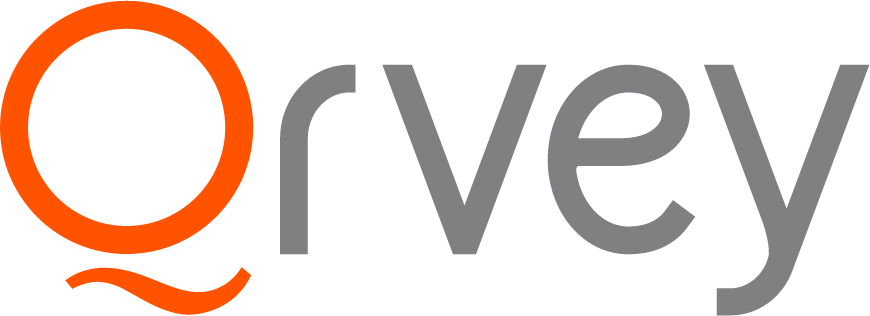Choosing the right cloud platform for your SaaS company is a critical decision. With several hosting options available, it’s important to find a solution that meets your specific needs. When scaling an embedded analytics function within your multi-tenant SaaS application, Microsoft Azure offers the infrastructure to power your growth.

Global Reach and Scalability
One of the key advantages of Azure is its extensive global cloud data center network. Azure has data centers in regions around the globe, which means your SaaS applications can be hosted closer to your customers. This global reach translates into lower latency, faster load times, and a better overall user experience.
Scalability is another area where Azure excels. As your SaaS company grows, your cloud infrastructure needs to grow with it. Azure’s resources make this easy with its powerful scaling capabilities.
Whether you’re serving a handful of users or millions, Azure allows you to scale your web applications efficiently. This flexibility ensures that your application remains performant even as your customer base expands.
Security and Compliance
Data security is a top concern for any SaaS company, especially when handling sensitive data. Azure is known for its strong security features and compliance certifications. Whether you’re dealing with GDPR, HIPAA, or other regulatory requirements, Azure has you covered. Microsoft’s commitment to security includes built-in encryption, advanced threat protection, and rigorous compliance with industry standards.
Compliance is more than just checking boxes—it’s about ensuring your customers’ data is protected at all times. Azure’s security framework is designed to meet the most stringent regulatory requirements, making it a trustworthy choice for SaaS businesses. With Azure, you can focus on building great software while knowing that your data security is in good hands.
Cost-Efficient Scaling with Azure for SaaS Applications
Cost is always a consideration when choosing where to host your cloud-native application.
Azure’s pay-as-you-go model is particularly appealing for SaaS companies. Instead of committing to expensive, upfront infrastructure costs, you only pay for the resources you use. This model is ideal for startups and growing businesses that need flexibility as they scale.
This is one of the primary reasons Qrvey deploys to Azure using containers and not expensive servers.
Automated scaling is another cost-saving feature of Azure. With automated scaling, your embedded BI for SaaS on Azure functions can automatically adjust to handle increased loads. This ensures performance without unnecessary costs during slower periods. This means you don’t have to worry about manually scaling resources or over-provisioning just to be safe.
Azure also offers robust cost management tools that provide insights into your cloud spending. These tools help you optimize your resource usage and reduce costs, giving you greater control over your budget. By leveraging Azure’s cost-efficient scaling options, SaaS companies can achieve a balance between performance and cost-effectiveness.
Optimizing Performance and Reliability of SaaS Applications with Azure
High availability and redundancy are crucial for any Azure analytics apps.
Downtime can lead to frustrated customers and lost revenue. Azure’s infrastructure is built with redundancy in mind, ensuring that your application remains available even if something goes wrong. With multiple data centers and automated failover systems, Azure minimizes the risk of downtime.
Performance monitoring is another key feature that Microsoft Azure offers. Tools like Azure Monitor and Application Insights allow you to track the performance of your applications in real time. These tools help you identify bottlenecks, diagnose issues, and make informed decisions to improve your application’s performance. By using Azure’s monitoring and diagnostics tools, you can ensure your application runs smoothly and efficiently.
Load balancing and traffic management are also essential for maintaining a smooth user experience. Azure provides powerful load balancing tools that distribute traffic across multiple servers, preventing any single server from becoming a bottleneck. This ensures that your users always experience fast and reliable service, even during times of high demand.
Security and Compliance in Azure
Azure takes security seriously, offering a comprehensive suite of tools to protect your SaaS applications.
Azure Security Center provides threat detection, security recommendations, and compliance management in one place. This centralized approach makes it easier to manage your security posture and respond to potential threats.
Data encryption is another critical aspect of Azure’s data analytics platform features. Azure encrypts data both at rest and in transit, ensuring that sensitive information is always safe. In addition, Azure’s robust access controls allow you to manage who has access to your data, further enhancing security.
Compliance is an ongoing process, and Azure is committed to helping SaaS companies meet their regulatory requirements. With a wide range of compliance certifications, including GDPR, HIPAA, and ISO 27001, Azure provides the tools you need to stay compliant. This focus on security and compliance makes Azure a reliable partner for SaaS companies.
Best Embedded Analytics Software on Azure
When it comes to embedded analytics for SaaS on Azure, you get a strong foundation. The Azure analytics platform provides the infrastructure to host and scale analytics queries at scale. Power BI, for instance, integrates seamlessly with Azure for business analytics. This allows companies to build powerful reports for internal use cases.
However, if you’re looking for a solution that focuses solely on embedded analytics, Qrvey is the best embedded analytics solution hosted on Azure. Unlike Power BI, which relies on iframes, Qrvey uses JavaScript-based embedded widgets, providing a smoother, more integrated experience.
Qrvey is also ready for multi-tenant analytics out-of-the-box. This eliminates the need for extensive configuration to support multiple users and tenants.
To meet data security needs, Qrvey includes a native semantic layer for easy integration into a parent SaaS application. Furthermore, as a self-hosted solution, Qrvey helps maintain certifications and offers complete control over your data.
Qrvey’s focus on embedded analytics means it’s ready to meet the unique needs of SaaS companies. Qrvey helps you offer self-service analytics to your users. They can build custom dashboards and workflow automation. With these tools, you can deliver a powerful embedded analytics solution.
Conclusion
Azure is a comprehensive cloud for SaaS companies. It helps them grow, protect, and enhance their applications.
Azure is more than just a cloud platform. Azure is a good choice for SaaS businesses of all sizes. It is available worldwide and offers strong security. Azure also provides affordable scalability and high-quality analytics tools.
And when you’re looking to offer self-service dashboard building, Qrvey and Azure are a natural fit.
Let’s chat and we can review how we power embedded analytics for SaaS applications hosted on Azure.

David is the Chief Technology Officer at Qrvey, the leading provider of embedded analytics software for B2B SaaS companies. With extensive experience in software development and a passion for innovation, David plays a pivotal role in helping companies successfully transition from traditional reporting features to highly customizable analytics experiences that delight SaaS end-users.
Drawing from his deep technical expertise and industry insights, David leads Qrvey’s engineering team in developing cutting-edge analytics solutions that empower product teams to seamlessly integrate robust data visualizations and interactive dashboards into their applications. His commitment to staying ahead of the curve ensures that Qrvey’s platform continuously evolves to meet the ever-changing needs of the SaaS industry.
David shares his wealth of knowledge and best practices on topics related to embedded analytics, data visualization, and the technical considerations involved in building data-driven SaaS products.
Popular Posts
Why is Multi-Tenant Analytics So Hard?
BLOG
Creating performant, secure, and scalable multi-tenant analytics requires overcoming steep engineering challenges that stretch the limits of...
How We Define Embedded Analytics
BLOG
Embedded analytics comes in many forms, but at Qrvey we focus exclusively on embedded analytics for SaaS applications. Discover the differences here...
White Labeling Your Analytics for Success
BLOG
When using third party analytics software you want it to blend in seamlessly to your application. Learn more on how and why this is important for user experience.




